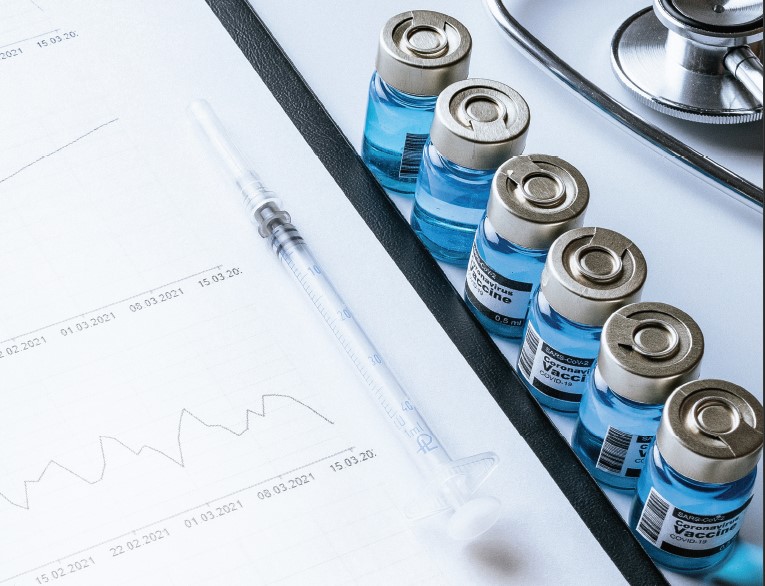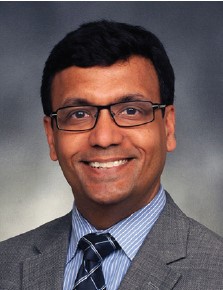
Not only is it safe for cardiovascular patients to get any of the approved COVID-19 vaccines—it’s especially important that they do so, according to Partho Sengupta, MD, MBBS, FAAC, the newly appointed Chief of Cardiology at Robert Wood Johnson University Hospital and at Rutgers Robert Wood Johnson Medical School.

Why is it so important for cardiovascular patients to get the vaccine?
“People with cardiovascular disease are more vulnerable to the effects of COVID-19,” Dr. Sengupta explains. “That’s because it causes a state of inflammation to the inner lining of blood vessels, leading to a greater likelihood of abnormal heart rhythm, blood clots and heart attacks. Clinical studies have shown that COVID-19 patients with cardiac conditions have a higher risk of needing to be put on a ventilator. Vaccination protects people from these severe effects.”
What kind of side effects can be expected?
“Normally, people may or may not get a tiny bruise and short-term pain at the site of the shot,” Dr. Sengupta says. “If you’re on a blood thinner, you may get a bigger bruise. Normal side effects, especially after a second dose, may include tiredness, headache, muscle pain, chills, fever or nausea. Some people have had allergic reactions to the vaccine, but those are extremely rare.”
After a person is fully vaccinated, can he or she resume normal activities?
“Clinical trials have shown 90 to 95 percent protection, but there’s a possibility that some people may develop COVID-19 even after being vaccinated; the infection runs a milder course,” Dr. Sengupta says. “The CDC [Centers for Disease Control and Prevention] guidelines on masking are evolving. However, patients may still choose to be additionally cautious and wear a mask and practice social distancing, as we wait to see the impact and evolution of the most recent CDC guidelines.”
What else should cardiovascular patients do to protect themselves?
“Get outdoors and exercise—walk, bike, experience nature,” says Dr. Sengupta. “The pandemic has made a lot of people very fearful of any outdoor experience. At least 50 percent of my patients have given up any form of activity. The result is that they gain weight, become deconditioned, and conditions like hypertension and blood pressure become uncontrolled.
“I advise patients to avoid crowds and clusters of people, but not to avoid being physically active. Try to get at least 30 minutes of moderate-intensity exercise on most days. All of this will help you feel better and build your resilience.”
If you’ve been skipping physician visits, as many have during the pandemic, be sure to get back in a regular routine as soon as you can, Dr. Sengupta advises. “People have put off procedures and elective interventions and even allowed their symptoms to worsen for fear of going out during the pandemic,” he says. “This is your chance to resume your relationship with your doctor and get back on track.
“In fact, you may find that you can do many routine checkups remotely, thanks to all the progress taking place with telehealth and remote monitoring devices,” he says. “The pandemic has sparked a lot of innovation, which is allowing people to get care while still in their homes, and that trend is going to continue.”
RWJBarnabas Health: Your Heart-Health DestinationWhether you’re in need of care for high blood pressure, require heart surgery or are interested in ways to help keep your heart healthy, RWJBarnabas Health’s heart, vascular and thoracic care programs are here for you. We offer:
|
For more information or to connect with one of NJ's top cardiovascular specialists, call 888-724-7123 or request an appointment.